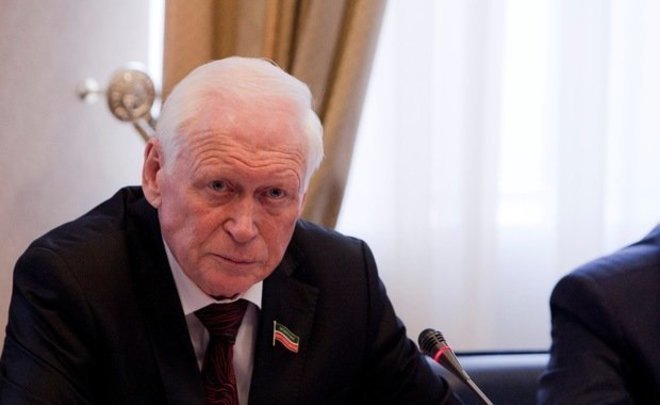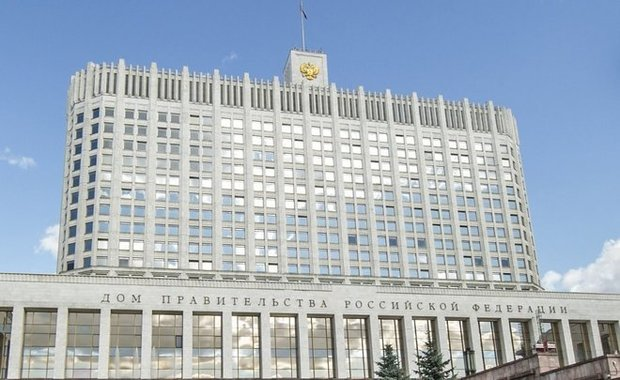Leonid Yakunin: ‘All regions raised the issue because they seriously felt the cash shortage’
Rustam Minnikhanov and Alexander Tsybulsky persuades the federal authorities to return income tax to the regions

The federation authorities heard the indignant rumbling of Tatarstan, Arkhangelsk Oblast and other regions that lost a considerable part of personal income tax after the introduction of the united tax payment on 1 January. A group of deputies chaired by State Duma Vyacheslav Volodin and Chairwoman of the Federation Council Valentina Matviyenko presented a bill on the priority transfer of personal income tax to regional budgets, that’s to say, income tax will go to the local treasury, not to fill the shortfalls of the federal budget. “We hoped to finish with a profit of up to 5 billion rubles but got a deficit of 3.8 billion rubles,” head of the Tatarstan State Council’s Budget Committee Leonid Yakunin. “Many regions are expecting the process transfer of income tax from the united tax account will be arranged,” ACRA analytic rating agency noted.
How to relocate income tax to the region
The regions finally got the top federal authorities attention by persuading them of the necessity to relocate income tax “to whom it may concern” — regional and local budgets. With the introduction of the mechanism of the united tax payment (all taxes are paid at once to one account administered by federal treasury), the regions felt serious losses in personal income tax collection — from 13% to 20% of the total amount of taxes.
After the shock, the regions started to ask the return to the previous income tax crediting: when a salary is paid, 13% of income tax is transferred to the local treasury. But the Russian Ministry of Finance insisted on keeping the united tax payment. As a result of lasting negotiations, there was found a compromise — personal income tax is credited as a priority, that’s to say, it goes directly to the local treasury through the united federal account. A dedicated bill was registered in the State Duma’s system on 11 May evening.
Five influential State Duma deputies including Vyacheslav Volodin and Alexander Zhukov as well as four senators of the Federation Council chaired by Valentina Matviyenko launched the initiative. The amendments establish that personal income tax is sent to the Russian regions’ budgets as a priority and fixed in the Russian Tax Code.

State Duma on the regions’ side
“The bill on crediting personal income tax as a priority was adopted in the State Duma,” deputy of the Russian State Duma Ayrat Farrakhov wrote on his Telegram channel on 12 May morning. “Rustam Minnikhanov directly asked the lawmakers to make a decision on this issue as soon as possible.”
The deputy reminded his audience that when summing up the performance of tax collection during the first quarter of the year, the rais of the republic “expressed a big concern about the problem of uneven transfer of personal income tax after the introduction of one tax payment day and one account.” Personal income tax can be stabilised when the way it is credited changes.
“The bill adopted by Vyacheslav Volodin and Valentina Matviyenko envisages that personal income tax will be deposited to dedicated budgets as a priority. Also, this implies mechanisms of a quicker transfer of money to the regional budgets in case of the positive balance of the united tax accounts,” Farrakhov said.
The bill On Making Changes to Part One of the Tax Code of the Russian Federation is expected to be received in regional parliaments in the next days. They will have to give their opinion, to approve it or not and offer their remarks for this initiative.

Expected a profit but got a deficit
Volodin and Mativyenko’s legislative initative is likely to be backed in the republic.
“All the regions raise this issue because everybody felt the gap in the first quarter,” head of the Tatarstan State Council’s Budget Committee Leonid Yakunin told Realnoe Vremya.
According to him, personal income tax is important for municipalities and the republican budget. The tax is distributed between different budget levels in different proportions depending on every territory’s income but personal income tax has a crucial meaning for the municipal treasury. According to him, in the first quarter of the year, the republic hoped to collect over 5 billion rubles of personal income tax amid a rise in salaries and low unemployment but got a deficit of 3.8 billion rubles.
“It is correct that now the bill provides a priority when crediting the united tax payment,” he indicated and expressed his hope that the amendments to the Tax Code would be adopted without long-term debates: “They are highly likely to be adopted quickly. Perhaps, they will start working by early June. If now we receive them officially, send our remarks, I think they are going to be adopted.”
The indignation about the “seamless” united tax payment was heard at a meeting of Tatarstan tax and financial agencies on 27 April. It became known then that the republic’s losses in personal income tax totalled 20%. 20 billion were collected, 3.8 billion were missing. 38 municipalities suffered tax losses. “We expected this to simplify and improve [our work], but this isn’t yet happening,” Yakunin stated.
The drawback of this system is that neither tax agencies nor municipalities can control the way personal income tax is paid.

Earlier, the head of Arkhangelsk Oblast claimed that the transition to the united tax payment caused a noticeable fall in money transfer for budgets in the first quarter of the year. “The fall in taxes in the budget totalled 2.1 billion rubles compared to the same period in 2022, including personal income tax decreased by 13.1%. At the same time, about half of quarterly transfer was made on the penultimate day of the quarter. We assume that the exclusion from personal income tax can decrease the negative impact of the united tax payment on the dynamics of the replenishment of regional budgets,” noted Alexander Tsybulsky.
Like a broken alarm clock?
Nevertheless, the regions wanted more. “They wanted to save the old way of personal income tax payment, that’s to say, when an organisation paid salaries and immediately paid the tax,” one of Realnoe Vremya’s interlocutors said. Nowadays tax and financial services manually collect information about “how much has been paid, make their balance.” “The regions hoped the programme would run like clockwork but got a “broken alarm clock,” sources says.
Senior Director and head of ACRA group of sovereign and regional rating group Yelena Anisimova assumes that failures in tax collection will be fixed by June. “Indeed, many regions have been talking about difficulties with forecasting income tax since the start of the year due to the introduction of the united tax payment. We saw that incomes in some cases stagnated in February and even reduced but the situation improved in April.”
“According to our data, many regions expect the process of crediting income tax from the united tax account to be fixed by the middle of the year. We assume all money that wasn’t received must be transferred to the budgets of regions and municipalities, however, it is obvious this will take some time. Given the offered legislative initiative (in case it is successfully implemented), such a problem should be solved,” she supposes.

Treasury loans not enough to fill the gaps
The first reading is scheduled for May. “Indeed, there have arisen difficulties with timely reception of personal income tax, which is the main source of tax income of regional budgets in most regions, to municipal and regional budgets,” noted Director and head of Expert RA’s sovereign rating group Tatiana Tirskikh.
The interlocutor of the newspaper explained that if before 2023 personal income tax wasn’t credited later than the next day after a taxpayer was paid a salary, in 2023, it is no later than day 28 of the current month. Also, if a taxpayer doesn’t have enough money, it is divided between budget levels proportionally, that’s to say, each of the budgets doesn’t receive the money equally. Neither is there a possibility of sending money from the united tax account to repay a debt.
“There have been seen uneven payments in regional budgets since the start of the year. A considerable deficit was seen in February. Moreover, there are constant expenses, for instances, to pay salaries, which cannot be put off. The gap between not received incomes and expenses is compensated by treasury short-term loans. Though these loans are cheap, 0.1% is anyway has to be paid to service them. Regions also fear budget spending by the end of the year because day 28 is the penultimate business day and there is a great possibility a considerable part of tax payments will go to the next month. The same can be said about the third quarter of the year too,” added Tatiana Tirskikh.
According to her, the change in the order and transfer of personal income tax to dedicated budgets as a priority, of course, will have a positive impact on regional budget spending. “In the first quarter of 2023, we saw personal income tax wasn’t fully received in regional budgets, about 200 billion rubles, or 22% less than in the first quarter of 2022. The shortfall was observed in all the regions (except for the Nenets Autonomous District), such regions as Orenburg, Chelyabinsk, Lipetsk, Kaliningrad oblasts, Kalmykia, Adygeya, Ingushetia and Karachayevo-Cherkessia republics didn’t get more than 30%,” she noted.
The bill On Making Changes to Part One of the Tax Code of the Russian Federation introduced to the State Duma is planned to be considering during the first hearing of the spring session in 2023, which is in May.